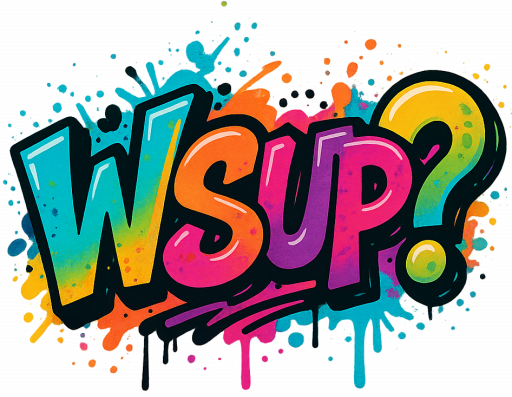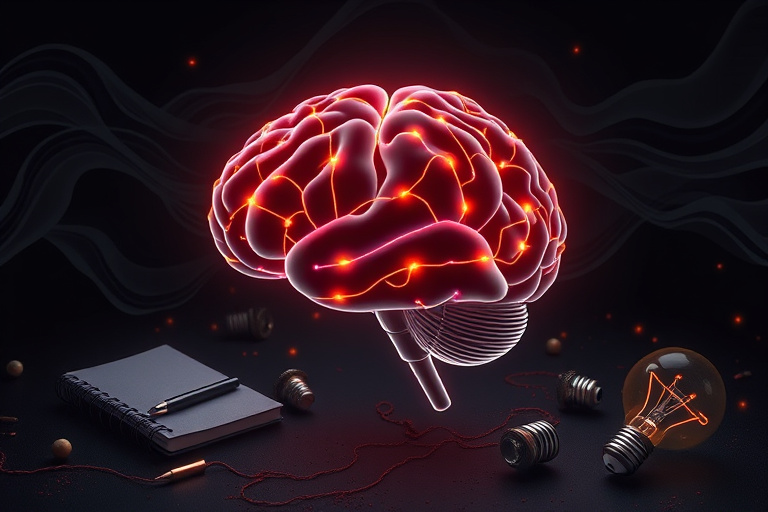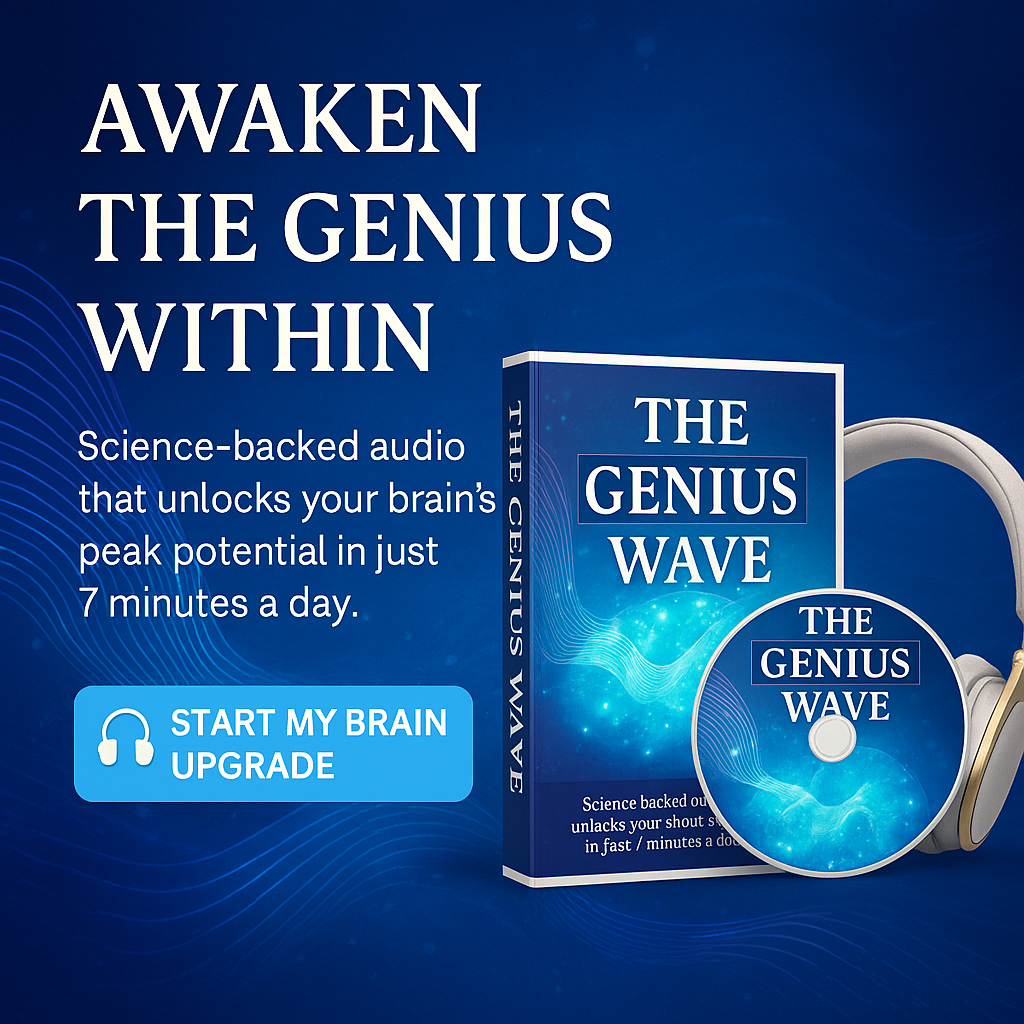Introduction: Evaluating the Truth Behind the Genius Wave Memory Program
In recent years, numerous memory improvement programs have emerged, promising to enhance cognitive abilities through various techniques. One such program is The Genius Wave. While the claims can be enticing, it is essential to examine whether these methods are supported by scientific evidence. Scientific validation is crucial because it helps distinguish between effective, evidence-based approaches and those that rely solely on marketing hype. Understanding the scientific foundation behind memory enhancement techniques ensures that users make informed decisions about their cognitive health.
What Is the Genius Wave Memory Improvement Program?
The Genius Wave Memory Improvement Program claims to boost memory, focus, and overall cognitive skills through a series of specialized exercises and techniques. It emphasizes harnessing neuroplasticity—the brain’s ability to reorganize itself by forming new neural connections—to improve mental performance. The program incorporates methods such as brain training exercises, visualization techniques, and neurofeedback strategies designed to stimulate brain activity and promote learning.
Its intended benefits include better memory retention, increased mental clarity, and enhanced learning capacity. Users often seek such programs to support academic achievement, professional performance, or simply to maintain cognitive vitality as they age.
Scientific Foundations of Memory Improvement Techniques
Understanding whether these techniques are grounded in credible neuroscience is vital. Memory and learning are complex processes involving multiple brain regions, neurotransmitters, and neural pathways. Techniques that leverage neuroplasticity are supported by a substantial body of research indicating that targeted mental exercises can lead to measurable improvements in cognitive function.
However, not all methods claiming to enhance memory are equally supported by scientific evidence. For example, traditional brain training games have shown mixed results in scientific studies, with some research indicating modest benefits and others questioning their long-term effectiveness. When evaluating the techniques used in the Genius Wave program, it is important to compare them with established, evidence-based methods such as spaced repetition, mnemonic devices, and cognitive training validated through peer-reviewed research.
Does the Genius Wave Program Have Scientific Validation?
Currently, there is limited publicly available research specifically validating the Genius Wave program through rigorous scientific studies or clinical trials. While the principles it employs—such as neuroplasticity and brain training—are supported by neuroscience, the specific efficacy of the program’s methods remains less clear without peer-reviewed evidence or independent validation.
Expert endorsements and scientific scrutiny are essential for establishing credibility. Without such validation, it is difficult to determine whether the program’s claims are substantiated by scientific data or are primarily marketing assertions. As with any cognitive training program, it is advisable to approach claims critically and seek out peer-reviewed research to confirm effectiveness.
Effectiveness of the Genius Wave Memory Program: What Does the Evidence Say?
Available user reviews and independent assessments of the Genius Wave program suggest that some individuals experience improvements in memory and focus. However, these outcomes vary widely based on individual factors such as age, baseline cognitive ability, and consistency of practice. It is important to set realistic expectations; while some users report noticeable benefits, significant or rapid improvements are unlikely without sustained effort and complementary healthy habits.
Research indicates that consistent engagement with scientifically supported memory techniques can lead to gradual improvements. Therefore, users should view such programs as part of a broader approach to cognitive health, including proper nutrition, physical activity, and mental stimulation.
Safety, Reliability, and Potential Side Effects of the Program
Most cognitive training exercises, including those in the Genius Wave program, are generally considered safe when used appropriately. There are no widely reported adverse effects associated with typical brain training activities. Nonetheless, overexertion or unrealistic expectations can lead to frustration or disappointment.
To maximize safety and effectiveness, users should follow recommended guidelines, avoid excessive practice sessions, and consult healthcare professionals if they have underlying neurological conditions or concerns. Combining cognitive training with overall brain health practices enhances safety and potential benefits.
Cost, Value, and Time Commitment: Is the Genius Wave Program Worth It?
The pricing structure of the Genius Wave varies depending on subscription options and access levels. When evaluating whether it is worth the investment, consider the demonstrated benefits and your personal goals. While some users find value in the program, it is important to recognize that cognitive improvements typically require consistent effort over time.
Most users may need several weeks to months of regular practice to notice meaningful changes. The time commitment varies but generally involves daily or weekly exercises designed to fit into a busy schedule. Weighing the cost against the potential benefits and your commitment level can help determine if the program aligns with your expectations.
What Do Users and Experts Say About the Genius Wave Program?
User reviews of the Genius Wave are mixed, with some reporting positive experiences and others expressing skepticism about the extent of their improvements. Verified testimonials often highlight increased focus and memory clarity, but these are subjective and may not reflect universal results.
Insights from cognitive health professionals suggest that while brain training can be beneficial, it should be part of a comprehensive approach to brain health. It is crucial to differentiate genuine, evidence-supported testimonials from marketing claims that may overstate the program’s effectiveness.
Final Thoughts: Making an Informed Decision on Memory Enhancement Programs
In summary, while the principles behind the Genius Wave Memory Improvement Program are rooted in neuroscience concepts like neuroplasticity, there is limited scientific validation specific to this program. Users should approach such offerings with a critical eye, recognizing that individual results vary and that no single program guarantees dramatic improvements.
When choosing cognitive training solutions, prioritize those supported by peer-reviewed research and endorsements from experts. Additionally, combining memory techniques with overall brain health habits—such as regular exercise, proper sleep, and a balanced diet—can optimize cognitive well-being.
Resources and Further Reading
For those interested in exploring the scientific basis of neuroplasticity and memory training, reputable sources include peer-reviewed journals and publications on cognitive neuroscience. Consider reviewing studies on evidence-based methods like spaced repetition and mnemonic strategies, which have demonstrated efficacy in improving memory and learning.
Some recommended tools for scientifically supported brain improvement include apps and programs that incorporate validated techniques, ensuring that your efforts are grounded in credible research.




